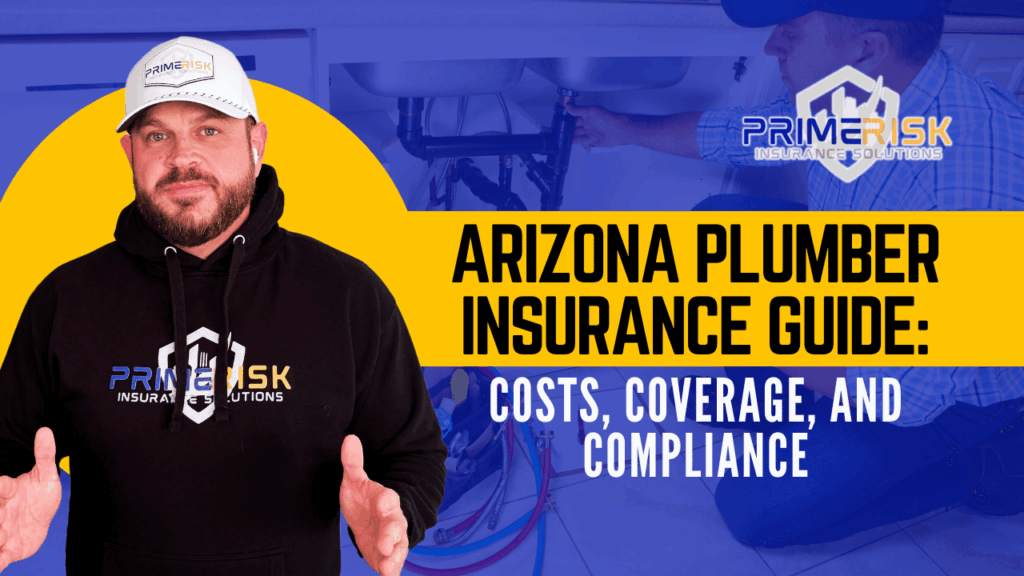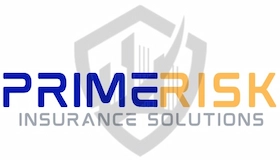
Why Plumbing Contractors in Arizona Need the Right Insurance
If you’re a plumbing contractor in Arizona, you already know the opportunities are massive. With more than 13,700 plumbers working statewide and a projected 30% job growth by 2030, the plumbing trade is booming. But along with this growth comes risk.
Every job you take on carries potential liabilities—property damage, injuries, regulatory fines, or professional mistakes. Without the right insurance, a single accident could wipe out your business or lead to personal financial ruin.
Whether you’re a seasoned contractor scaling your operation or a newly licensed plumber just starting out, understanding Arizona’s contractor insurance landscape is critical. This guide will walk you through the types of coverage you need, how much it costs, and how to choose the best protection for your plumbing business.
The State of Plumbing in Arizona: Growth and Risk
Arizona’s construction boom has created steady demand for plumbing services. Each year, the state expects to add over 1,500 new plumbing jobs, driven by:
- Population growth
- New residential and commercial developments
- Infrastructure maintenance and upgrades
But plumbing in Arizona also comes with unique challenges:
- Extreme heat and monsoons
- Soil and terrain variations affecting installations
- Risk of water damage in both new and existing buildings
These factors make comprehensive insurance not just a business formality, but a critical risk management tool.
Arizona Plumbing License and Bonding Requirements
Plumbing License Types
Before you choose insurance, you need to understand how licensing affects coverage. Arizona offers three main plumbing contractor license classifications:
- C-37 (Specialty Commercial Plumbing): For large-scale, industrial, or commercial projects. These require higher insurance coverage due to increased liability risks.
- R-37 (Specialty Residential Plumbing): For residential plumbing work, including solar installations. This work carries risks of property damage in occupied homes.
- CR-37 (Specialty Dual License): Allows both commercial and residential projects, requiring broad insurance protection to cover diverse job sites.
License Process
To qualify for a plumbing license in Arizona, you need:
- At least four years of documented plumbing experience
- Passing scores on both a trade exam and the Arizona Statutes and Rules Exam
- Registration with the Arizona Corporation Commission if operating as an LLC or corporation
What Insurance Do Arizona Plumbers Legally Need?
Arizona balances consumer protection with small business flexibility. While the state doesn’t require all insurance types for licensing, certain coverages are mandatory or strongly recommended.
Workers’ Compensation Insurance (Mandatory)
If you employ even one person, Arizona law requires you to carry workers’ compensation insurance. This coverage pays for:
- Medical expenses for injured workers
- Wage replacement during recovery
- Employer protection from injury lawsuits
Rates vary by your claims history, payroll size, and job classifications.
Contractor Bonds (Mandatory)
While not technically insurance, Arizona requires plumbers to post surety bonds to protect consumers against contractor violations. The bond amounts depend on your license type and gross annual volume:
| License Type | Gross Volume | Bond Amount |
|---|---|---|
| Residential (R-37) | Under $375,000 | $4,250 |
| Residential (R-37) | Over $375,000 | $7,500 |
| Commercial (C-37) | Under $150,000 | $2,500 |
| Commercial (C-37) | Over $10 million | $50,000 |
What Insurance Do Most Plumbing Contractors Carry (Even If It’s Not Required)?
Even though Arizona doesn’t require general liability or professional liability insurance for licensing, most contractors purchase additional coverage because:
- General contractors demand it before awarding projects
- Homeowners and commercial clients request proof of insurance
- It protects you from expensive out-of-pocket losses
Essential Insurance Coverage for Plumbers in Arizona
1. General Liability Insurance
General Liability Insurance protects you from third-party claims for:
- Bodily injury
- Property damage
- Completed work failures (such as faulty pipe installations)
Typical Coverage Limits:
- $1 million per occurrence
- $2 million aggregate
Average Annual Cost:
- $790–$1,050 for small contractors
- Up to $1,965 for larger firms with significant payroll
2. Professional Liability Insurance (Errors & Omissions)
Professional liability protects you from claims that your advice or services caused financial harm, such as:
- Incorrect system design
- Failure to identify code violations
- Oversights in plumbing plans
Average Cost: $500–$2,000 annually
3. Commercial Property Insurance
Commercial Property Insurance covers physical assets like:
- Office space
- Tools and equipment
- Inventory and parts
Consider adding inland marine insurance for tools transported to job sites.
4. Business Owner’s Policy (BOP)
A Business Owner’s Policy (BOP) bundles general liability and property insurance—often at a lower cost than buying separately.
Average Cost: $1,200–$3,000 per year
5. Commercial Auto Insurance
Commercial Auto Insurance covers business vehicles and equipment in transit. Arizona’s legal minimums are usually inadequate for business use.
Recommended Coverage:
- $1 million combined single limit
6. Tools and Equipment Insurance
Also called inland marine insurance, this covers:
- Theft
- Damage
- Loss of mobile tools and machinery
Specialized Coverage Plumbers Should Consider
Contractors Pollution Liability Insurance
Plumbing work can expose you to pollution risks like:
- Mold from leaks
- Sewage backups
- Asbestos or lead disturbances
Standard general liability policies exclude pollution claims. Pollution liability insurance fills this gap.
Cyber Liability Insurance
If you store customer data or take online payments, consider cyber insurance to protect against:
- Data breaches
- Ransomware attacks
- System shutdowns
Business Interruption Insurance
Business Interruption Insurance protects your income if you’re forced to shut down temporarily due to:
- Fire or property damage
- Theft of essential tools
- Natural disasters affecting your office or warehouse
Employment Practices Liability Insurance
Employment Practices Liability Insurance covers claims from employees related to:
- Discrimination
- Harassment
- Wrongful termination
How Much Does Insurance for Arizona Plumbers Cost?
Here’s a typical range for plumbing contractors:
| Coverage Type | Estimated Annual Cost |
|---|---|
| General Liability | $790–$1,965 |
| Workers’ Compensation | $100–$1,500 per employee |
| Professional Liability | $500–$2,000 |
| Commercial Auto | $1,200–$2,400 per vehicle |
| Business Owner’s Policy (BOP) | $1,200–$3,000 |
| Inland Marine (Tools/Equipment) | Varies by inventory value |
Costs depend on:
- Business size and payroll
- Type of work (commercial vs residential)
- Claims history
- Safety programs in place
- Credit and financial stability
How to Choose the Right Insurance Provider
When selecting an insurer, consider:
- Financial Strength: Choose companies with strong ratings from A.M. Best or Moody’s.
- Industry Expertise: Work with providers that specialize in contractor insurance.
- Claims Reputation: Look for companies known for fair, efficient claims handling.
- Policy Flexibility: Ensure you can customize coverages for your business needs.
- Agent Support: Use agents or brokers familiar with the construction industry.
Risk Management Tips for Lower Premiums
- Implement a formal safety program
- Provide regular employee training
- Use quality control checklists
- Maintain detailed documentation of jobs and contracts
- Update your insurance annually as your business grows
Regulatory Compliance and Insurance
- Stay current with Arizona Registrar of Contractors licensing rules
- Follow OSHA safety standards
- Understand local building codes
- Ensure your insurance policies remain valid by maintaining all required licenses and certifications
Next Steps: Protect Your Plumbing Business
Every plumbing job carries risk—but the right insurance strategy turns risk into manageable cost.
Now that you know what Arizona plumbers need to stay protected, here’s what to do next:
- Assess your business risks: Make a list of your specific exposures and coverage gaps.
- Request insurance quotes: Compare costs and coverages from multiple providers.
- Consult an expert: Work with a contractor-focused insurance agent to ensure no critical protections are missing.
- Review your contracts: Make sure your insurance aligns with project requirements and client expectations.
Investing in the right insurance today will help you grow your business with confidence, knowing you’re protected from the unexpected.

